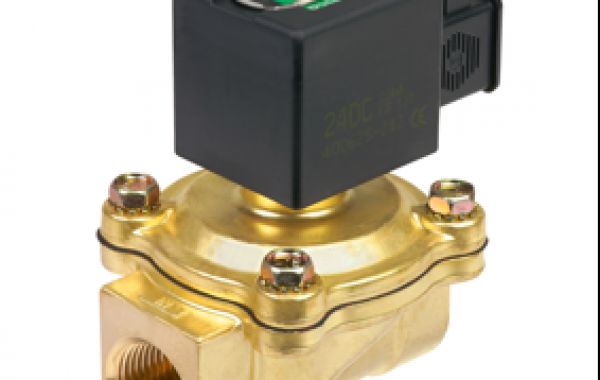Specifically designed for gas handling, solenoid valves play a critical role in ensuring precise and efficient operation while maintaining safety standards. In this comprehensive guide, we delve into the applications, types, and safety considerations associated with solenoid valves for gas.
Applications of Solenoid Valves for Gas:
Industrial Burners:
- Solenoid valves are commonly used in industrial burner systems to control the flow of fuel gas to burners.
- They regulate gas flow based on demand, allowing for precise control over combustion and temperature levels.
Gas Control Systems:
- Solenoid valves play a crucial role in gas control systems used in industries such as oil and gas, chemical processing, and power generation.
- These valves are employed to regulate the flow of natural gas, propane, or other gases in various processes, ensuring optimal performance and safety.
HVAC Systems:
- In heating, ventilation, and air conditioning (HVAC) systems, solenoid valves are utilized to control the flow of gas to heating units.
- They enable on/off control of gas supply, contributing to energy efficiency and comfort control in commercial and residential buildings.
Medical Equipment:
- Solenoid valves are integral components of medical equipment such as anesthesia machines and gas chromatographs.
- They provide precise control over the flow of medical gases, ensuring accurate dosing and delivery during procedures and analysis.
Types of Solenoid Valves for Gas:
Direct Acting Solenoid Valves:
- Direct acting solenoid valves operate by using an electromagnetic coil to directly open or close the valve.
- These valves are suitable for applications requiring fast response times and can operate at low pressures.
Pilot Operated Solenoid Valves:
- Pilot operated solenoid valves utilize a smaller pilot valve to control the flow of gas to the main valve.
- They are ideal for applications requiring higher flow rates or operating pressures, as the pilot valve reduces the force required to actuate the main valve.
Normally Closed and Normally Open Solenoid Valves:
- Solenoid valves can be categorized as normally closed (NC) or normally open (NO) based on their default position when de-energized.
- Normally closed valves remain closed when power is off, while normally open valves remain open.
- The choice between NC and NO valves depends on the specific application requirements and safety considerations.
Safety Considerations:
Compliance with Standards:
- Solenoid valves for gas must comply with industry standards and regulations governing their design, installation, and operation.
- Adherence to standards such as ANSI (American National Standards Institute) and CSA (Canadian Standards Association) ensures that valves meet stringent safety requirements and undergo proper testing and certification.
Redundancy and Fail-Safe Features:
- In critical applications where safety is paramount, solenoid valves may incorporate redundant systems and fail-safe features.
- Redundant solenoid valves provide backup in case of primary valve failure, while fail-safe features ensure that valves fail in a safe position to prevent gas leaks or other hazards.
Proper Installation and Maintenance:
- Correct installation and regular maintenance are essential for ensuring the reliability and safety of solenoid valves.
- Installation should follow manufacturer guidelines and include proper sealing and protection against environmental factors.
- Regular inspection, testing, and lubrication help identify and address any issues before they escalate into safety concerns.
Conclusion:
Solenoid valves for gas are indispensable components in various industries, providing precise control over gas flow in critical applications. Understanding the applications, types, and safety considerations associated with solenoid valves is crucial for ensuring efficient operation and maintaining safety standards. By adhering to industry standards, selecting the appropriate valve type, and implementing proper installation and maintenance practices, operators can maximize the reliability and safety of gas handling systems in industrial and commercial environments. Solenoid valves play a vital role in enhancing efficiency, productivity, and safety across a wide range of applications where gas control is essential.








